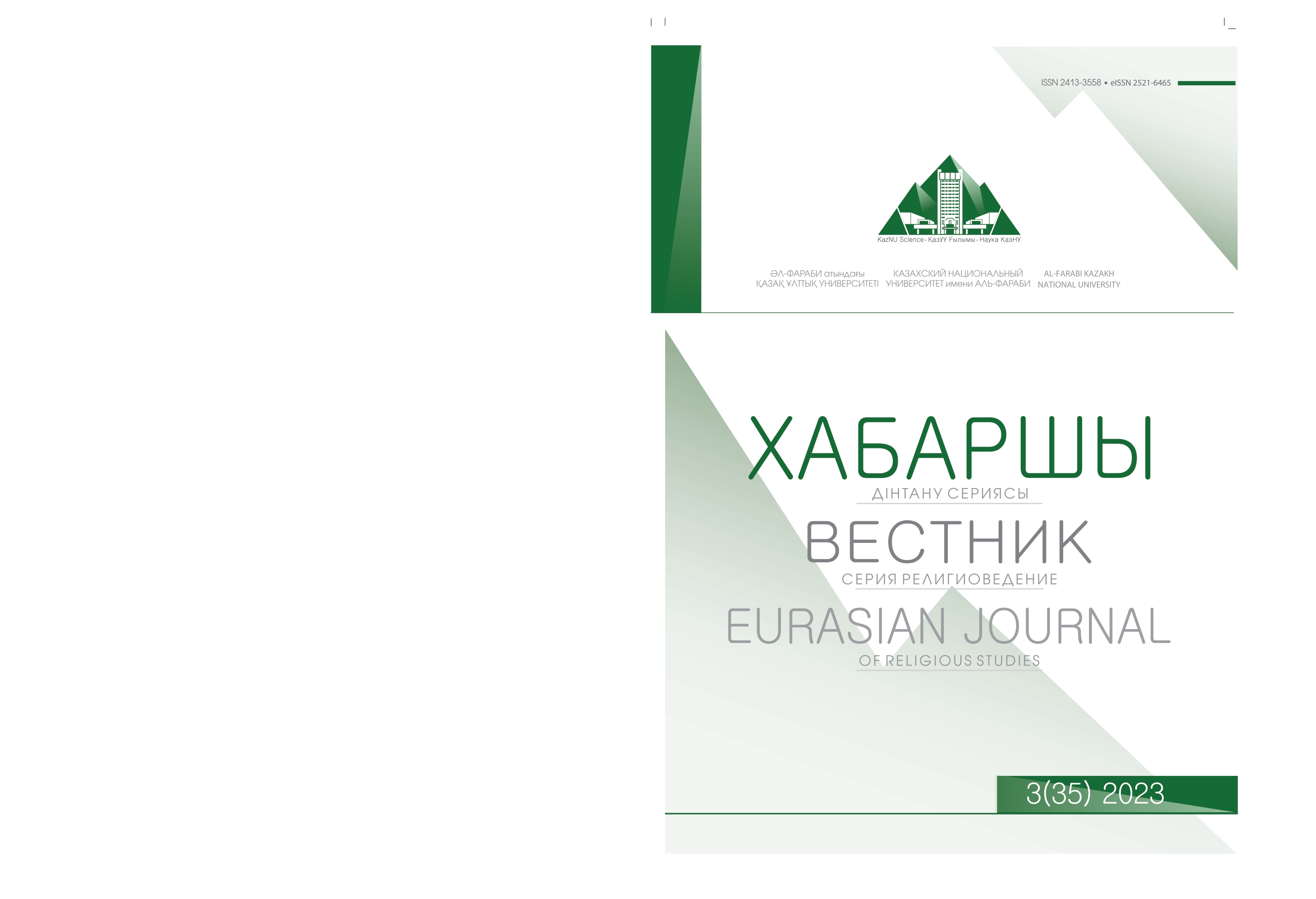Destructive human activities in the information society
DOI:
https://doi.org/10.26577//EJRS.2023.v35.i3.r6Keywords:
destructiveness, individual, information society, freedom, religionAbstract
One of the clear distinguishing features of the information society is total detachment, the main features are detachment from oneself, from other people and from society since detachment is an impressive factor in the destructive activity of a person. Despite the significant positive result in the knowledge of nature, humanity has not learned to command the universe and space accordingly. In addition, the extreme turned into a ruler, before whom the person submits, makes efforts to at least soften or, if possible, bypass and circumvent. At first glance, new technologies open amazing and unimaginable prospects for the individual, thereby acquiring the will to which the so-called civilized world has rushed for many centuries but achieves this by losing a sense of security and safety, increasing solitude and anxiety. Thus, forums, meetings, scientific developments, and research, intended for various areas of discussion of aggressiveness and cruelty, have become as conclusive and convincing in scientific activity at the turn of the 20th-21st centuries, as violence is a vivid picture in reality. The interest in recent years of various scientific studies in the subject of studying the phenomenon of destructiveness and aggression has mainly caused, at first glance, the comprehensiveness of destructive inclinations, the ratio of which frightens the substance of society, from another point of view, the constant development of the humanization of knowledge, which has created an increase in enthusiasm for the problem anthropomorphism.
Key words: destructiveness, individual, information society, freedom, religion.
References
Бандура А. (2000) Теория социального научения. – СПб.: Евразия. – 320.
Гапанович, С.О. (2017) К вопросу о данных антропоэкологии. – М.: Основы экологии. – 129.
Грачев, Г.В. (2000) Манипулирование личностью: организация, методы и технологии информационно-психологического воздействия. – М.: Алгоритм. – 136.
Лазарева И.Ю. (2021) Предотвращение деструктивного информационно-психологического воздействия на молодежь в интернете. – М.: ППО. №26 вып., №4. – 422.
Семигин Г. (2003) Социологическая энциклопедия Vol. 2 / Национальный фонд социальных наук / Гл. изд. В.Н. Иванов. – М: Мысль – 185.
Скрипкина Т.П. (2019) Социально-психологические характеристики активных пользователей Интернета. Цифровое общество в культурно-исторической парадигме. – M.: МГПУ. – 240.
Эмелин, В.А. (2012) Психологические последствия эволюции технологий данных. – М.: Нац. психол. журнал - № 1 (7). - 127.
References
Bandura A. (2000) Teorija social'nogo nauchenija [Theory of social learning]. – St. Petersburg: Eurasia. – 320. (in Russian)
Beck, U. (1992) Ecological Enlightenment. Essays on the Politics of the Risk Society. – New Jersey: Prometheus. – 65.
Bell, D. (1973) The Coming of Postindustrial Society. A Venture in Social Forcasting. – NY: Reissue. – 20.
Bell, D. (1999) The coming postindustrial society. Social forecasting experience. – Moscow: Nauka. – 124.
Castells, M. (2000) Information Age: Economy, Society and Culture. – Oxford: Polity Press. – 114.
Emelin, V.A. (2012) Psihologicheskie posledstvija jevoljucii tehnologij dannyh. – M.: Nac. psihol. zhurnal - № 1 (7) [Psychological consequences of the evolution of data technologies. National psychological magazine. No. 1 (7)]. – Moscow. – 127. (in Russian)
Fromm, E. (1989) Escape from freedom. – М: Avon Books. – 254.
Gapanovich, S.O. (2017) K voprosu o dannyh antropojekologii [On the issue of data anthropoecology]. – M.: Principles of ecology. – 129. (in Russian)
Giddens, A. (1991) The Consequences of Modernity. – Cambridge: Polity – 85.
Giddens, E. (1994) Fate, risk and safety // Thesis. № 5. – 109.
Grachev, G.V. (2000) Manipulirovanie lichnost'ju: organizacija, metody i tehnologii informacionno-psihologicheskogo vozdejstvija [Personality manipulation: organization, methods and technologies of information and psychological impact]. – M.: Algorithm. – 136. (in Russian)
Guardini, R. (1990) The end of a new time// Problems of philosophy. № 4. – 137.
Lazareva, I.Yu. (2021) Predotvrashhenie destruktivnogo informacionno-psihologicheskogo vozdejstvija na molodezh' v internete [Prevention of destructive informational and psychological impact on youth on the Internet]. Psychopedagogy in Law Enforcement, vol. 26, no. 4. – Мoscow. – 422. (in Russian)
Martin, W. (1988) The Information Society. – London: Aslib. – 40.
Masuda, Y. (1983) The Information Society. – Washington: World future soc. – 29.
Mead, M. (2014) Culture and Commitment: A Study of the Generation Gap [Jelektronnyj resurs]. URL: http://mx.esc.ru/~assur/ocr/mead/mead.html
Semigin, G. (2003) Sociological Encyclopedia Vol. 2 / National Social Science Foundation / Ch. ed. V.N. Ivanov [Sociologicheskaja jenciklopedija Vol. 2 / Nacional'nyj fond social'nyh nauk / Gl. izd. V.N. Ivanov]. – M: Mysl – 185. (in Russian)
Skripkina, T.P. (2019) Social'no-psihologicheskie harakteristiki aktivnyh pol'zovatelej Interneta. Cifrovoe obshhestvo v kul'turno-istoricheskoj paradigme [Socio-psychological characteristics of active Internet users. Digital society in the cultural-historical paradigm]. – M.: MSPU. – 240. (in Russian)













